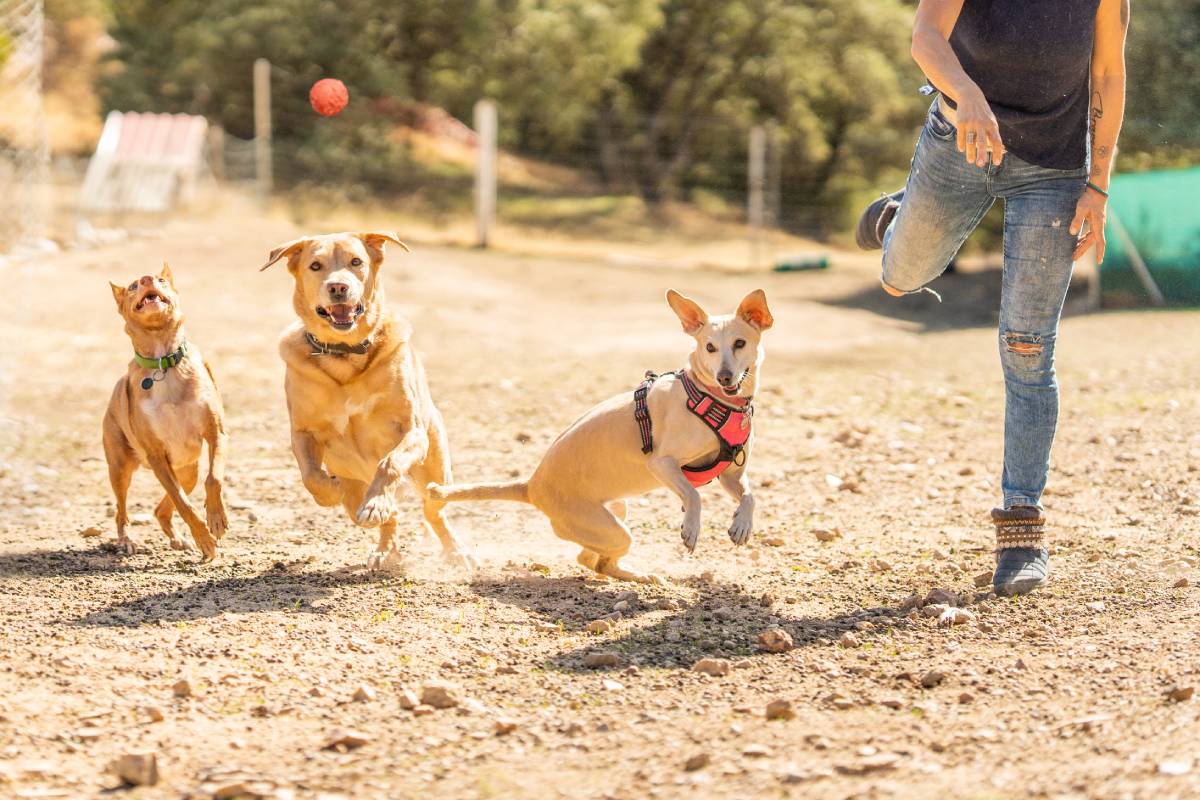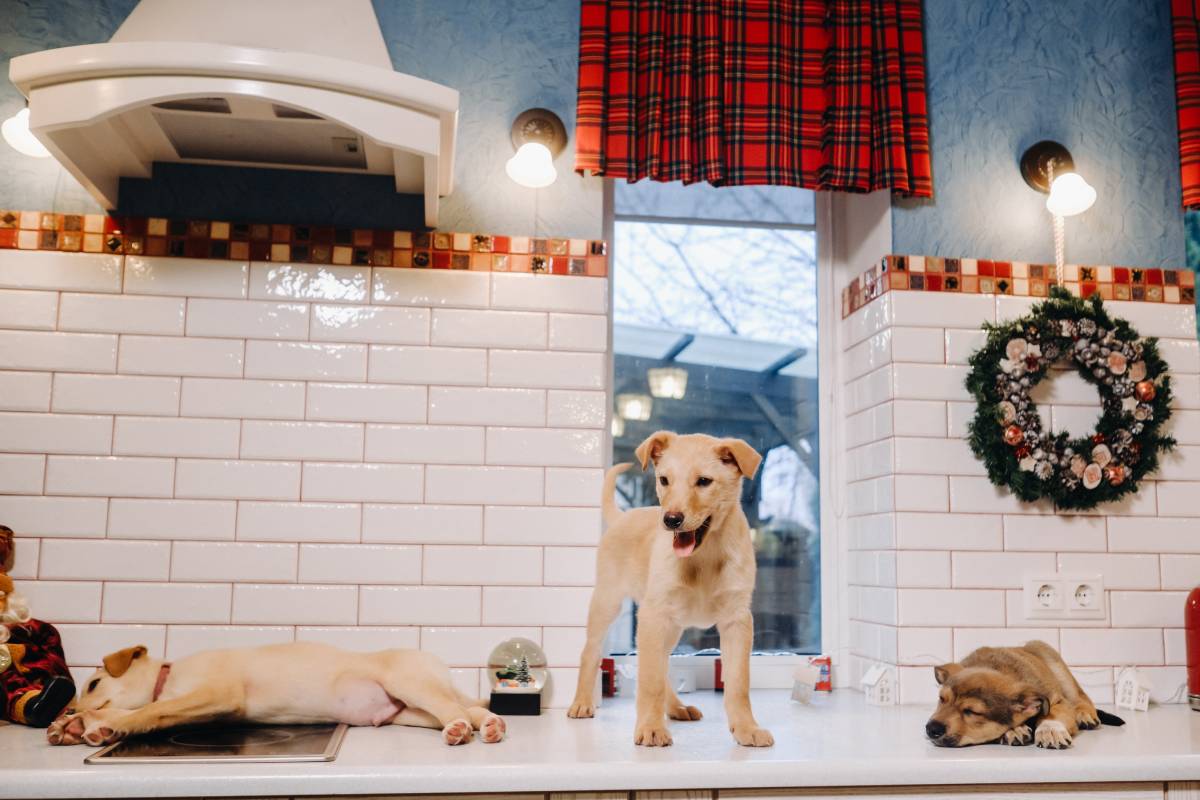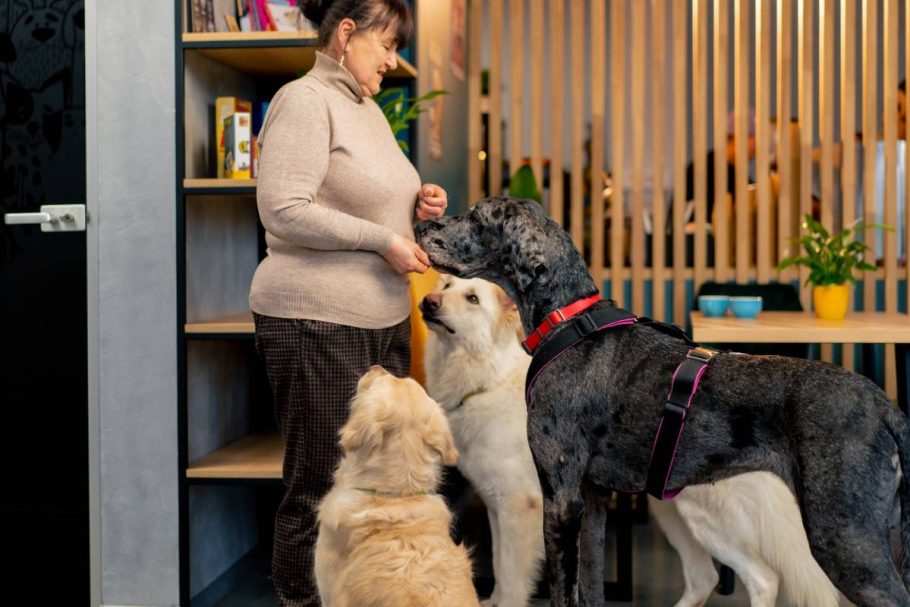Dog boarding refers to a service where pet owners can leave their dogs in the care of a boarding facility or kennel for a certain period of time, typically when they are unable to care for their dogs themselves. Boarding facilities provide food, shelter, exercise, and sometimes grooming services for the dogs in their care.
This service is especially useful for pet owners who are travelling, going on vacation, or facing situations where they cannot take their dogs with them. It ensures that the dogs are well cared for in their absence.

What factors influence the cost of dog boarding?
When it comes to dog boarding rates, there are several factors to consider. Deciding between a kennel, a dog sitter, or a high-end dog hotel with luxurious amenities can be challenging, especially since dogs can experience separation anxiety when away from their owners.
Here are the factors that can affect the cost of dog boarding:
- Size and breed of the dog: The weight of your dog often determines the price.
- Location: Boarding facilities in major cities like Sydney and Melbourne tend to be more expensive.
- Number of dogs: The second dog usually gets a cheaper rate.
- Accommodation type: Whether your dog stays in a private suite or a shared kennel, and whether it’s basic or luxury.
- Duration of the stay: Discounts usually apply for longer stays.
- Peak/off-peak times: Holiday periods typically have higher fees attached.
- Additional services: Such as grooming, training, and more.
Luxury dog hotels offering premium services like private suites, grooming, and training can cost significantly more than traditional kennels.
To find the right boarding facility that fits your budget and meets your dog’s needs, it’s essential to research and compare prices. Some facilities may offer discounts for longer stays or multiple dogs, so be sure to inquire about any special deals or promotions they may have.
How much does it cost to board a dog?
On average, dog boarding kennels charge between $20 and $50 per day, but prices can vary depending on various factors. Here’s an estimate of the cost for different dog boarding options per day:
- Standard dog kennel: $25 to $50
- Dog hotel: $45 to $90
- Dog home boarding or dog sitter: $35 to $65
- VIP or luxury dog suite: $60 to $120
For a week-long stay, the average cost of boarding a dog ranges from $140 to $560. Instead of just focusing on finding cheap dog kennels, prioritize finding the right fit for you and your furry friend’s needs.

Additional dog boarding costs
Most dog boarding facilities offer extra services for an additional charge, including dog grooming, outdoor play sessions, and training.
Here’s a breakdown of some common additional costs:
- Dog grooming: $25 to $50
- Dog training: $30 to $120 per lesson
- Walking: $5 to $20 (20-30 mins)
- Administering medication: $2 to $5
- Dog food: $3 to $5 per day
- Pet taxi for pick up and drop off: $20 to $80
It’s important to ask the facility about any additional fees or charges that may be applied to your dog boarding booking, such as cancellation fees or charges for pick-up or drop-off outside of office hours. Some facilities may include dog walking or feeding in the boarding rate, so make sure to inquire about what’s included in your dog’s stay.
What do you need to consider before boarding your dog?
Before boarding your dog, there are several important factors to consider to ensure their well-being and your peace of mind:
- Health and Vaccinations: Ensure your dog is up-to-date on vaccinations and is in good health. Some boarding facilities may require specific vaccinations, so check their requirements beforehand.
- Temperament and Socialization: Consider your dog’s temperament and socialization skills. Some dogs may not do well in a boarding environment if they are anxious or have behavioural issues.
- Boarding Facility: Research different boarding facilities to find one that suits your dog’s needs and preferences. Visit the facility beforehand to check cleanliness, safety, and staff qualifications.
- Staff Interaction: Inquire about the staff-to-dog ratio and how much interaction your dog will receive. Dogs benefit from regular human interaction and playtime.
- Accommodation Type: Decide whether your dog would be more comfortable in a private suite or a shared kennel. Some facilities offer luxury options with additional amenities.
- Additional Services: Consider whether you need any additional services such as grooming, training, or medication administration during your dog’s stay.
- Cost: Calculate the total cost of boarding, including any additional services, and ensure it fits your budget.
- Booking in Advance: Boarding facilities can fill up quickly, especially during peak times like holidays. Book your dog’s stay well in advance to secure a spot.
- Emergency Contact Information: Provide the boarding facility with emergency contact information, including your veterinarian’s details, in case of any health issues.
- Trial Stay: If possible, consider a trial stay or short visit before committing to a longer boarding period, especially if your dog has never been boarded before.







